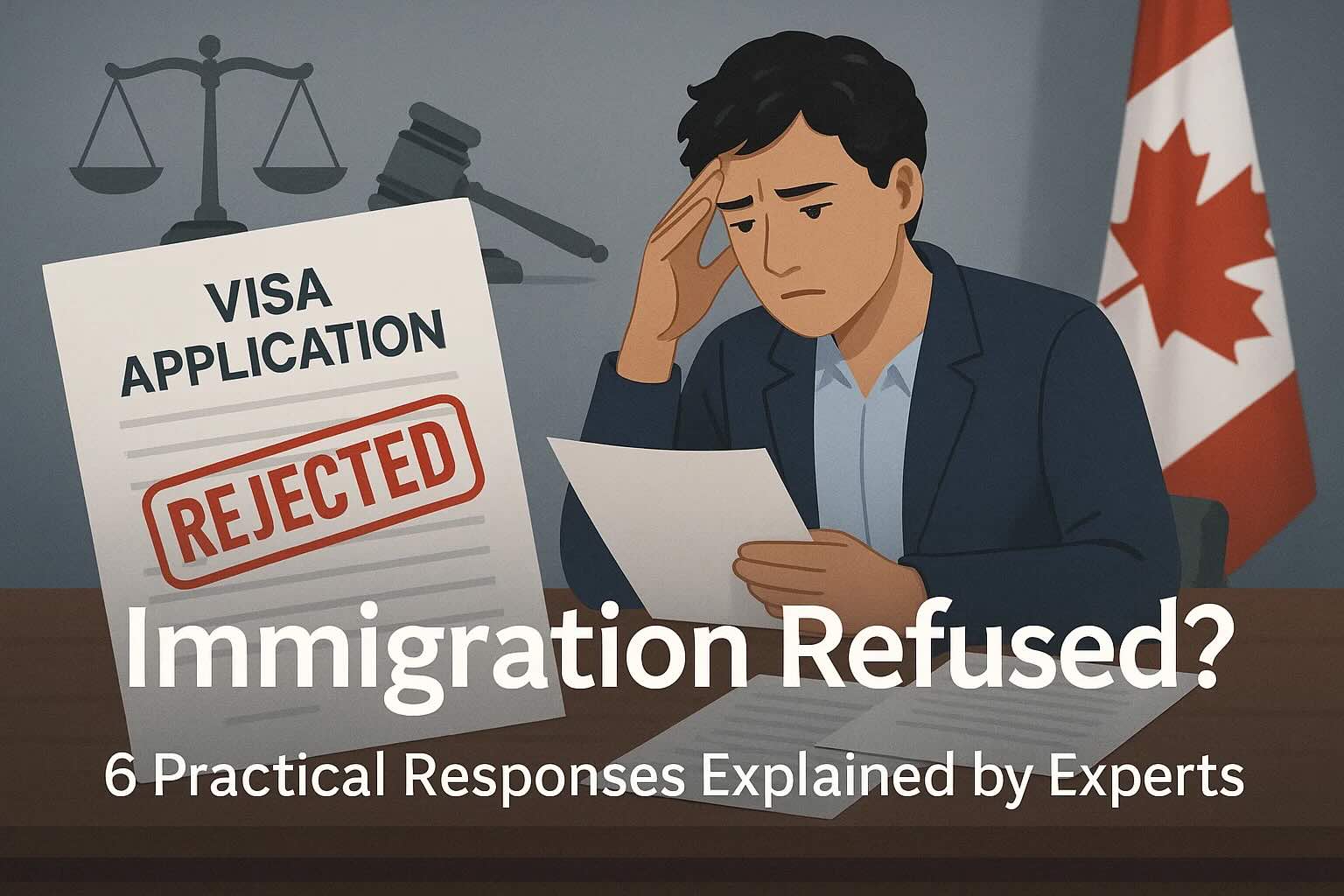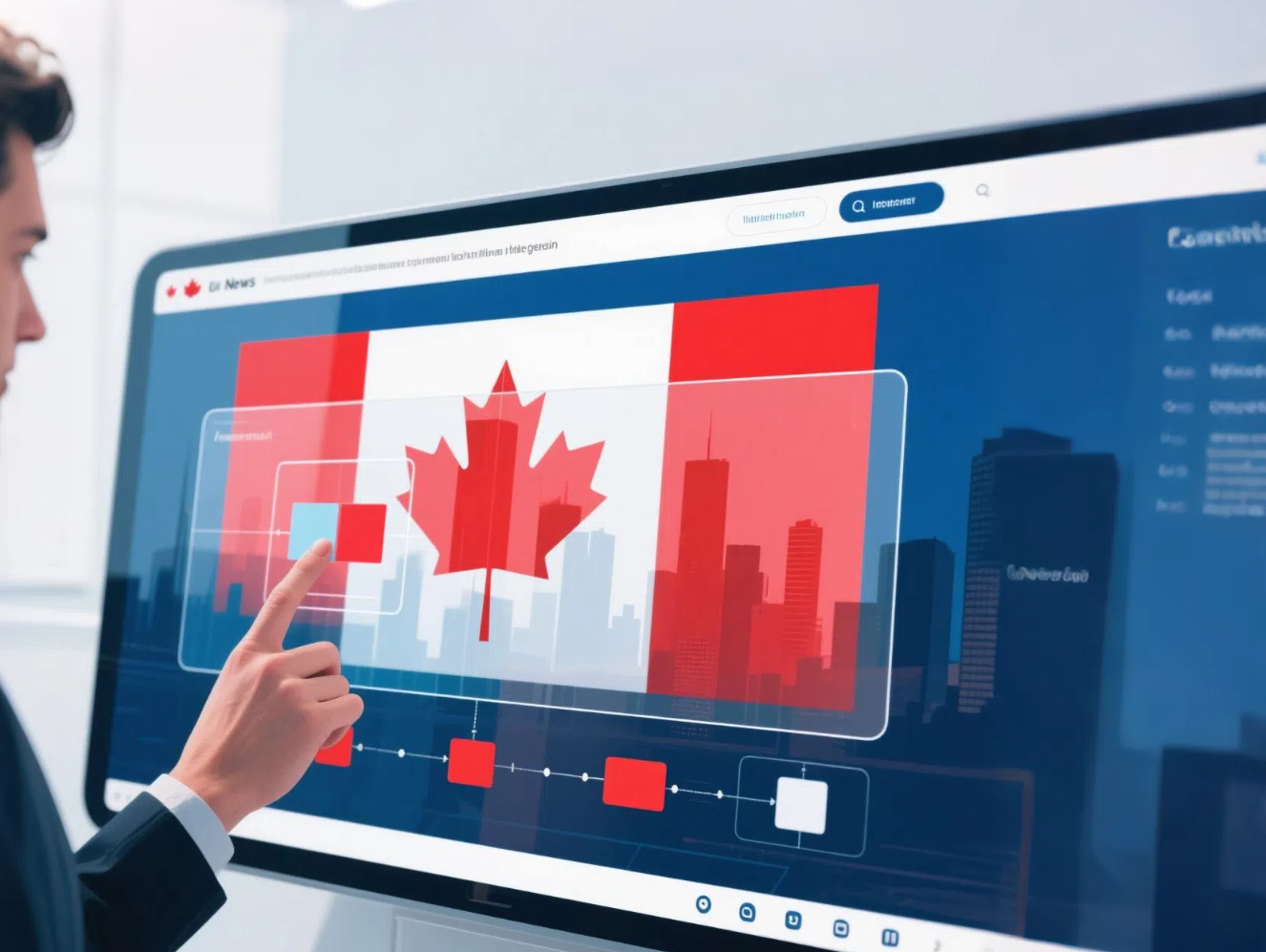Applying for Canadian citizenship is a crucial step for many permanent residents integrating into Canada, but the complexity of the process should not be underestimated. Immigration, Refugees and Citizenship Canada (IRCC) indicates that some applications are classified as "complex" or "non-routine" for specific reasons, with processing times potentially far exceeding the current standard timeframe of approximately eight months. As of the latest data, about 42,700 citizenship applications remain backlogged, highlighting the importance of understanding and avoiding potential issues.
IRCC has clearly identified the three main causes leading to the complexification of citizenship applications:
- The department requires you to submit extra documentation in support of your citizenship application;
- You miss a citizenship test, interview, or hearing; and/or
- IRCC identifies a potential criminal, security, or other admissibility concern.
The following provides a detailed explanation of these three points and offers specific coping strategies:
Document Requirements: Ensuring Completeness is the First Step to Avoiding Delays
When IRCC deems the application materials insufficient to fully assess the applicant's citizenship eligibility or the presence of inadmissibility factors (such as misrepresentation or serious criminality), they will request supplementary documents, leading to delays.
Key Strategy: Provide all necessary and potentially relevant supporting documents with the initial application submission. This includes:
Core Document Checklist (Applicable to all applicants):
| Category of Document | Accepted Documentation |
|---|---|
| Citizenship Application Form | Application for Canadian citizenship (CIT 002) |
| Physical Presence Calculation | Printout of online physical presence calculator results OR the How to Calculate Physical Presence form (CIT 0407) |
| Passport or Travel Document | Color copies of all pages in your passport (or equivalent travel document) covering the last five years preceding your application |
| Explanation for Missing Travel Document | If you do not have a travel document or passport, you must provide an explanation within the citizenship application form |
| Proof of Language Ability (CLB 4 or higher) | Photocopy of one of the following: 1. IRCC-approved third-party language test results; 2. Diploma, certificate, or transcript from post-secondary studies in English or French; or 3. Proof of achieving CLB 4 through a government-funded program. |
| Additional Language Documents (if applicable) | Other documents may also be submitted to support this language requirement. |
| Personal Identification | Photocopies of two personal ID documents that show your name, photo, and date of birth. These can be: 1. A copy of the biographical page on your passport/travel document*; 2. Permanent Resident (PR) Card**; 3. Driver’s license; 4. Health insurance card; 5. Senior citizen identification card; 6. Age of majority card; and/or 7. Foreign identity documents issued by a foreign government for purposes of identification. |
| Two identical citizenship photos | Photo size: 50 mm x 70 mm (2 in x 2¾ inches); face height must be 31–36 mm (1¼ – 1⁷⁄₁₆ inches) from chin to crown. Image quality: Photo must be clear, sharp, unaltered, with even lighting, no shadows or glare, natural skin tones, and good contrast with the background. |
| Fee receipt | Application fees must be paid online, and the receipt from IRCC must subsequently be included in online or paper applications. |
| The document checklist | Citizenship application document checklist (CIT 0007) |
*The biographical page of your passport may be used to fulfill both passport and ID requirements.
**PR Cards may only be used to fulfill the ID requirement if the second piece of identification used is also issued by the Canadian government.
Documents to be supplemented depending on the situation::
| Category of Document | Reason for documentation | Accepted Documentation |
|---|---|---|
| Use of a representative form | Applicants must declare that they are using a representative, or risk misrepresentation. | Use of representative form (IMM 5476) |
| Police certificates or clearances | For security purposes, must be given for any country where you spent 183 days (or more) in a row aged 18 years or older, for the four years immediately before your application. | Original police certificates from the relevant authorities in the country of your residence |
| Legal name change documents | For purposes of corroborating name changes, and ensuring documentation is consistent to the application. | If you changed your name legally in Canada: 1. Legal change of name document; 2. Court order; OR 3. Adoption order Accepted documents (family name changes only): 1. Marriage certificate; 2. Divorce decree; OR 3. Civil registration/declaration or revocation/annulment of union 4. Common-law relationship registration (where provincial law allows name change). Different documentation is acceptable for applicants who changed their name outside Canada. |
| Correction of a date of birth for a PR or Citizenship document | Correct any discrepancies regarding date of birth for the applicant’s citizenship certificate. | Request to correct a date of birth for a Permanent Resident Document or Citizenship Certificate form (IRM (003) |
| Correction of Sex or Gender Identifier | Correct any discrepancies regarding stated Sex or Gender identifiers for the applicant’s citizenship certificate. | 《Request for a change of sex or gender identifier form (IRM 002) |
| Residence outside Canada as a Crown Servant or with a Crown Servant family member | To disclose employment as a crown servant* (or with a crown servant spouse, common-law partner, or parent) while residing outside of Canada. | Residence outside Canada form (CIT 0177) Applicants under the age of 18 at the time of application are not required to submit this form. |
| Guardianship documents | To disclose a legal guardian whom IRCC will correspond with for applicants who are minors. | 1. Power of attorney; 2. Judicial court orders; 3. Affidavits; OR 4. Other official documentation proving guardianship |
*Crown servants are individuals employed in or with
- The Canadian armed forces;
- The federal public administration of Canada; or
- The public service of a Canadian province or territory.
For documents not in English or French, you must provide
- A translation in English or French; and
- An affidavit from the translator (if not a certified translator).
Translations must be completed by:
- A Canadian certified translator (member of a provincial/territorial translators’ association); or
- Another individual fluent individual in both languages.
If not certified, an affidavit from the translator is required to confirm language proficiency and translation accuracy.
In addition to the above, for applicants aged between 18 and 54, if unable to meet specific citizenship requirements due to compassionate reasons (such as being unable to fulfill language requirements or demonstrate adequate knowledge of the rights and responsibilities of Canadian citizenship by taking the citizenship test), a waiver may be requested. Supporting evidence must be provided.
Similarly, if an applicant is 14 years of age or older and cannot understand the meaning of taking the Oath of Citizenship due to a mental disability, a waiver for this requirement may also be requested. Supporting evidence is required.
To apply for one or more of these waivers, you must include the following:
| Category of Document | Reason for Documentation | Accepted Documentation |
|---|---|---|
| Waiver Request | Applying for a waiver of language and/or knowledge requirements. | Waiver Request Form (CIT 0116) |
| Corroborating Medical Opinion | Supporting documentation for those applying for a waiver of language/knowledge or the oath due to a medical condition. | Medical Opinion Form for Citizenship Waivers (CIT 0547) |
| Other supporting documents for waivers | Additional documentation to support your waiver request (e.g., test results, affidavits). | Any relevant supporting documents; note that submission does not guarantee approval — each request is case-specific. |
Key Processes: Do Not Miss Appointments, Communicate Promptly
Missing IRCC-scheduled citizenship tests, interviews, or hearings not only causes delays but, if not handled according to regulations, can even lead to the application being deemed abandoned or refused.
- Best Practice: Carefully record appointment times and locations, and ensure timely attendance.
- If Unable to Attend:
- Citizenship hearing: You must notify the office that scheduled the hearing in advance and provide a reason. The official notice will include contact information and consequences of non-attendance.
- Citizenship interview: You need to write to the IRCC office that scheduled the interview (by mail or via the online Web Form) within the timeframe specified in the notice, explaining the reason for absence. Failure to contact within the deadline will result in the application being closed, requiring re-application and fee payment.
- Citizenship Test:
- Online Test: If missed the first time, IRCC will automatically schedule a re-test invitation (you still have three attempts within 30 days). If missed a second time, you must contact the designated email address mentioned in the "Rescheduling" section of your test invitation and provide a reasonable explanation. Missing twice without contact will result in the application being abandoned.
- Paper Test: For absences from the first paper test or a re-test after failing the first attempt, follow IRCC's specific instructions for paper-based tests.
Background Check: Address and Handle Inadmissibility Issues
According to Canada's Citizenship Act, certain situations (such as involvement in serious crime, security risks, war crimes, etc.) may render a permanent resident ineligible to apply for citizenship. If IRCC identifies such issues during review, the application may be suspended or refused.
For individuals with criminal convictions that do not constitute an absolute bar to applying, the following legal avenues can be considered to demonstrate admissibility:
- Apply for Criminal Rehabilitation: Applicable for offenses committed at least five years prior to application for which all sentences (including probation, fines, etc.) have been completed, and which would also constitute a crime in Canada. If approved, the record will no longer be grounds for inadmissibility to Canada.
- Obtain a Legal Opinion Letter: Written by a Canadian immigration lawyer, explaining the specific impact of a criminal conviction on the applicant's admissibility under Canadian law. This can sometimes be used to argue for a favorable decision, especially when the case affects employment or family reunification.
Special Warning: The High Risk of Misrepresentation
Misrepresentation— whether intentionally providing false information or unintentionally omitting important details—can have severe consequences for the immigration journey. Many applicants do not realize that omitting information can also constitute misrepresentation. If found, the applicant may face a ban of up to five years from applying for Canadian citizenship or re-applying for permanent residence; in more serious cases, such as citizenship applications, the ban can extend up to ten years.
The Value of Professional Assistance
Applicants can certainly submit their citizenship application themselves. However, given the complexity, especially when any of the aforementioned complicating factors may be involved, hiring an experienced licensed immigration consultant or lawyer is highly beneficial. Professionals can:
- Ensure application materials are complete and accurate.
- Assess eligibility and identify potential risks.
- Assist in preparing and organizing all necessary supporting documents.
- Provide professional advice when an applicant misses a key appointment.
- Help avoid unintentional misrepresentation.
- Prepare strong legal opinion letters.
- Assist with complex criminal rehabilitation applications.
Conclusion
Although the processing time for non-routine cases is unpredictable, applicants can significantly reduce the risk of delay through meticulous material preparation, process monitoring, and professional legal intervention. IRCC is expected to prioritize clearing backlogged cases in 2024, and applicants are advised to optimize their application strategy during this window.









